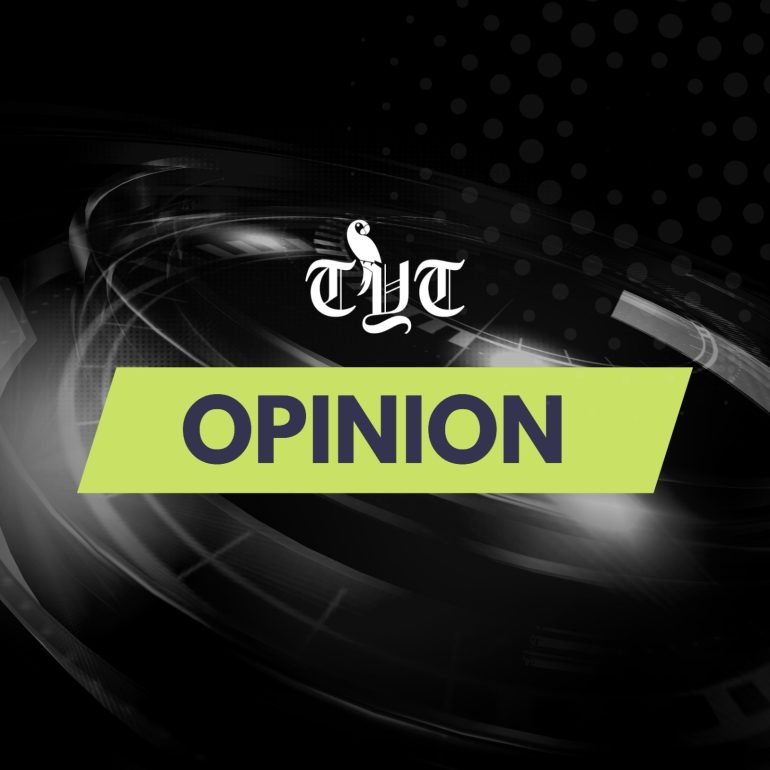August 5, 2025
By Bolarinwa Ayoola
Following a publication sponsored on both Vanguard Newspaper and Independent Newspaper on July 25, 2025 titled “Much Ado About the Indigenship Bill”, authored by Paul Asiodu, which attempted to pacify agitated Nigerians and weaken resistance to the Indigene Bill HB2057 proposed by the Deputy Speaker of the Nigerian House of Representatives, it is necessary to critically examine both the intentions behind the article and the bill itself.
In a clear attempt to gaslight Nigerians, the author claimed that the bill was designed to achieve national unity and promote development. He wrote that the systematic exclusion of non-indigenes from key economic and political opportunities represents a significant underutilization of Nigeria’s human capital. When capable and talented individuals are routinely denied opportunities based solely on their origin rather than their merit, skills, or potential contribution, it leads to a profound misallocation of human resources. This, in turn, stifles innovation, reduces overall productivity, and impedes economic growth.
The author dismissed several critical opinions against the bill as sponsored articles, specifically pointing to the Think Yorùbá First Organization as a major opponent.
Asiodu also stated that the bill was co-sponsored by Hon. Ginger Onwusibe, Hon. James Faleke, Hon. Blessing Amadi, Hon. Regina Akume, Hon. Khadija Bukar Ibrahim, and Hon. Abdussamad Dasuki. However, Hon. James Faleke and Hon. Blessing Amadi, in separate press releases, denied their involvement with the controversial bill. They described the claims as not only misleading but also blatant falsehoods. This development led Hon. Benjamin Kalu to withdraw the bill for further legislative consultation.
In light of these events, Nigerians must not overlook two key issues. First is the quality and integrity of individuals representing Nigerians in the state and federal houses of assembly, including the Senate. Second is the matter of systemic discrimination, which lies at the heart of this bill.
In what can be described as a legislative heist, Hon. Benjamin Kalu included the names of Hon. James Faleke and Hon. Blessing Amadi as co-sponsors of a bill that appears to be designed to capture land and political power, displace indigenous populations, and erase cultures, traditions, and identities. This action is highly questionable. If not an outright attempt to subvert the system, it certainly qualifies as a breach of trust. It is reasonable to conclude that the Deputy Speaker was fully aware of his actions and that he intentionally included these names to give the bill a false appearance of broad ethnic support. His actions amount to deception and a serious abuse of his privileges as a legislator and as a principal officer of the House of Representatives.
Recently, the Nigerian Senate was drawn into another embarrassing situation when Senator Natasha Akpoti made unsubstantiated allegations against the Senate President, His Excellency Godswill Akpabio. This episode attracted national and international attention, bringing shame to Nigeria’s global image. These deliberate uses of falsehood as tools of legislation should not only be condemned as shameless acts but also recognized as threats to the integrity of democratic institutions.
It is essential that the leadership of the House of Representatives investigate the deceptive conduct of the Deputy Speaker and take appropriate steps to restore public confidence in the legislative process. Such actions must serve as deterrents to prevent future abuses.
Regarding the issue of discrimination raised by the bill, it is important to note that Nigeria’s existing laws already guarantee the right of citizens to live and work anywhere within the country, regardless of ethnic affiliation. For decades, South West Nigeria, especially Lagos and Ogun States, has been the preferred destination for internal migrants. This has placed a heavy burden on the infrastructure, health care, education, and security systems of these states. Yet they do not receive special federal allocations to reflect the growing population resulting from internal migration.
While Lagos and other South West states employ a significant number of non-Yoruba individuals in their civil service, the situation is very different in many non-Yoruba states. In particular, states in the South East rarely include non-indigenes in their civil service workforce.
The South West has become the testing ground for national unity policies because of the liberal and hospitable nature of the Yorùbá people, while Yorùbá citizens often face restrictions in other parts of the country. For example, in Igbo-majority areas, Nigerians from other ethnic groups often face difficulties acquiring land or participating in politics. The 2023 presidential election highlighted this disparity. In the South East, Labour Party candidate Peter Obi won 87.78 percent of the vote, while the APC and PDP candidates won just 5.72 and 4.09 percent respectively. In contrast, APC candidate Bola Ahmed Tinubu received 53.59 percent of the vote in his South West stronghold, while PDP candidate Atiku Abubakar secured 50.58 percent in the North East, his political base.
Despite existing laws protecting the rights of internal migrants, some actors continue to ignore or circumvent these provisions.
It is therefore difficult to understand why new legislation is being proposed rather than ensuring the even and fair implementation of current laws across all geopolitical zones.
It is evident that Hon. Benjamin Kalu’s bill was driven by ulterior motives with the potential to destabilize the country. Nigerians must remain alert to legislative moves that disguise ethnic domination agendas under the pretense of unity or reform. Safeguarding Nigeria’s diversity and peaceful coexistence must remain a national priority.
